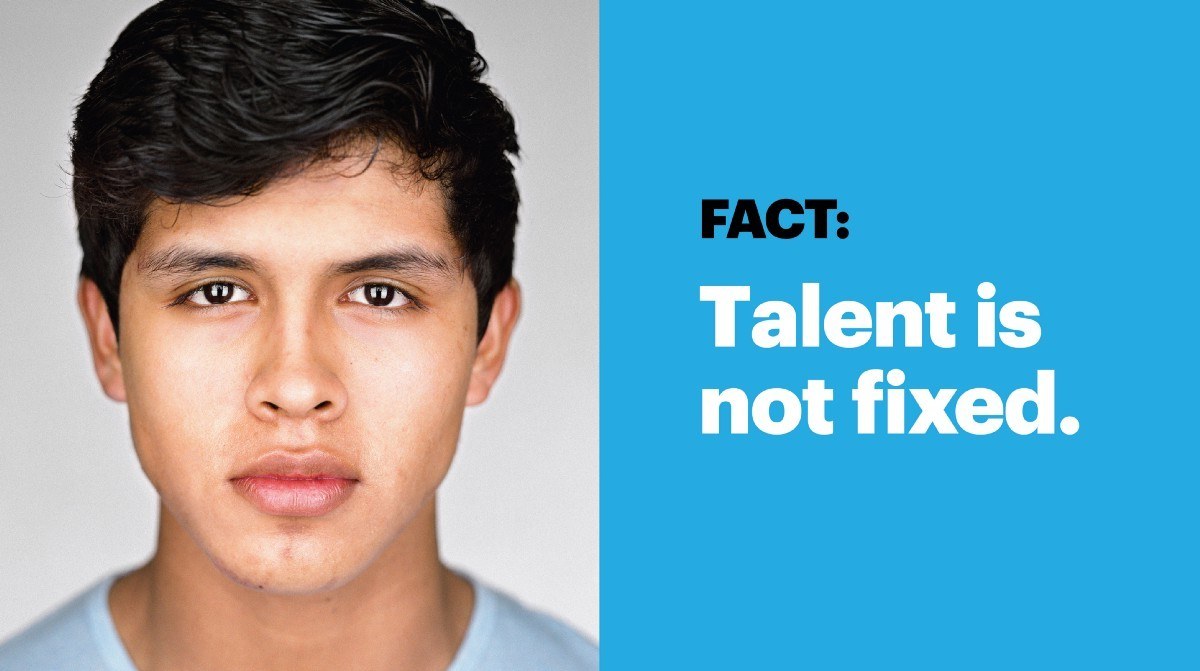How to Teach Growth Mindset to Teens (For Parents)
Students who have a growth mindset experience challenges as the way to learn and improve. Here's how you can equip students with one of the most important skills.

Walking through a local park recently, I saw a teenage boy wearing a t-shirt that read: “Effort wins over talent.” It reminded me of an idea I think about often, that if you believe you can learn new things and develop new skills, by working hard, you are more likely to achieve those goals. This critical insight was identified by Dr. Carol Dweck, a Stanford University psychologist, as a “growth mindset.”
How does this work? Dr. Dweck’s research has illustrated that “talent is not fixed.” People are not simply good at things — like writing, or math — while others are not. Many students say things like “I’m just not good at algebra” or “that’s a class for smart kids,” but studies by Dweck and others have shown students who have a fixed mindset see new learning experiences as a moment to be judged, not an opportunity to learn. This can make learning a painful struggle, leading many to give up.
Students who have a growth mindset, on the other hand, experience challenges as the way to learn and improve. They see hard work as being about learning, rather than a way to evaluate self-worth or assess sense of belonging academically. Overall, they learn and achieve at higher levels, even when they start out at the same place as those with fixed mindsets.
While Dweck identified growth mindset more than a decade ago, her insights have since been backed up by brain science, made possible by new technology that allows researchers to see images of the brain at work. Studies show that, when a person responds to new and difficult material by engaging in a struggle to learn, the neurons in their brain grow.
Believing that you can grow your abilities through effort—that talent is not static—is crucial. As Dweck puts it in her TED talk, we need to focus on showing young people the “Power of Yet,” meaning, I haven’t learned this yet, or I’m not good at this yet.
Growth mindset is an important idea for educators and schools, but it’s also a powerful tool that every parent can use to help their children and adolescents to learn and achieve at high levels. Here are six things a parent can do to help their adolescent develop this powerful growth mindset:
Examine your beliefs
Most of us grew up with conventional notions about fixed intelligence and abilities. We may have heard our own family members say (as I did) things like, “No one in our family has any math talent, but we’re good talkers.” We need to examine and change our own beliefs.
Spread the word
Show and tell adolescents the evidence that talent isn’t fixed. Watch Carol Dweck’s TED talk on the Power of Yet, and talk to young people about how they can grow the power of their own brains. Emphasize that they are in control. No one can do it for them.
Talk to other parents
At school, in faith communities, and in community organizations. Be an advocate for the Power of Yet.
Challenge stereotypes
Young people form their views about themselves from their daily interactions with adults and peers, but also from messages from the larger society. Growth mindset counters the messages from racial, ethnic, and gender stereotypes about intelligence in our society. Help your adolescent find role models, and learn about the life stories of successful women and men who faced racism, sexism and overcame them. These stereotypes are obstacles that undermine confidence in personal ability.
Encourage your adolescent
Encourage your adolescent to tackle new and difficult classes that actually prepare them for college and career. Emphasize how a growth mindset will equip them to take on challenges, put in effort, and ask for help in identifying better learning strategies to be successful. Challenge them to take on new interests, where they will have to invest real effort to get good at the activity.
Get Involved
Get involved with your child’s middle or high school. Growth Mindset will have greater impact if your child is in a school that fosters:
- high expectations and confidence in every student’s ability to learn at high levels
- a sense of belonging in an academic environment
- a school culture that reinforces acquiring a growth mindset and the behaviors that make it stronger
- teachers who provide students with new learning strategies that make their effort productive
All these actions by parents are vitally important for adolescents. Over the course of elementary and middle school, many teenagers have internalized messages that their abilities are fixed. When combined with the powerful adolescent need for belonging, the desire for peer support, and the drive to form their own identity, direct and powerful interventions from parents can help adolescents build powerful growth mindsets that lead to greater achievement in high school and better preparation for the future.









